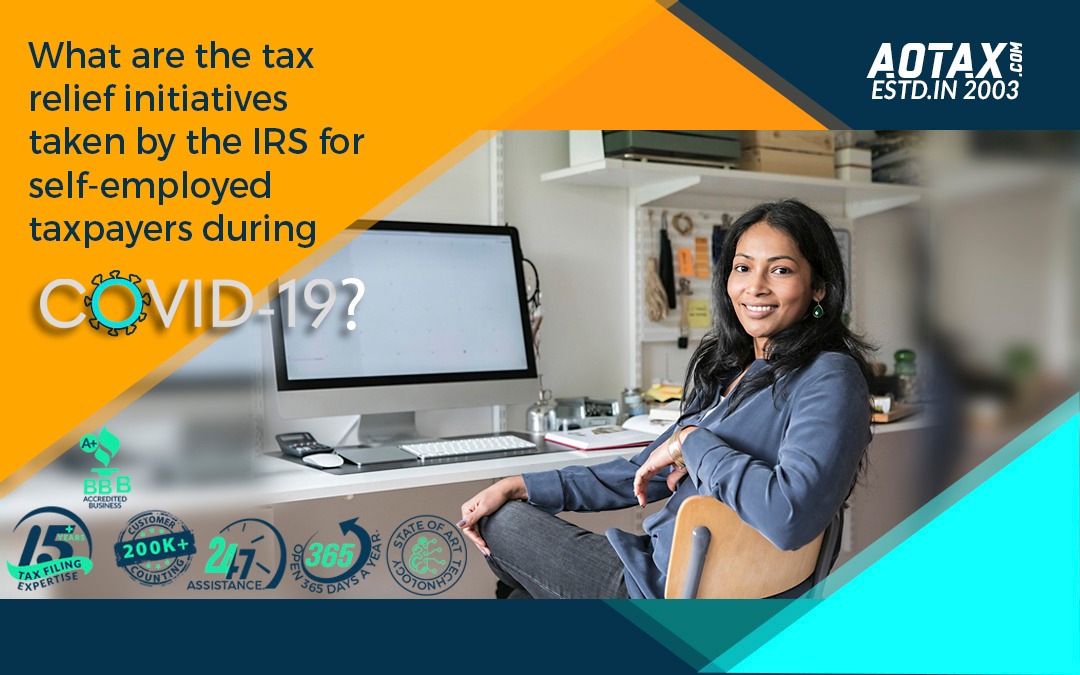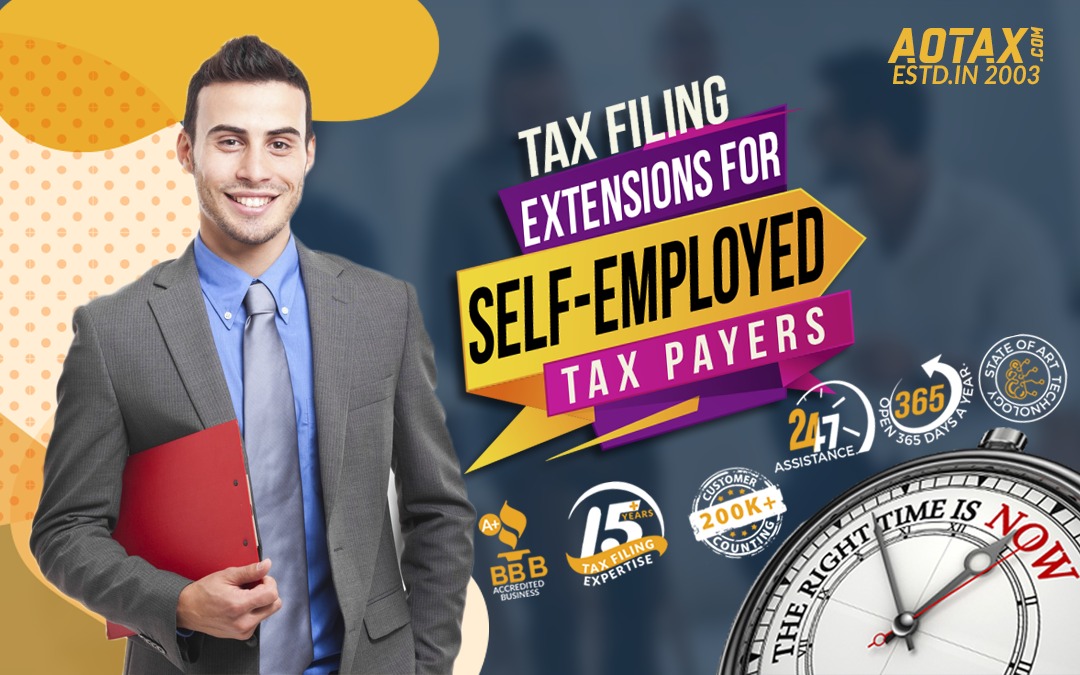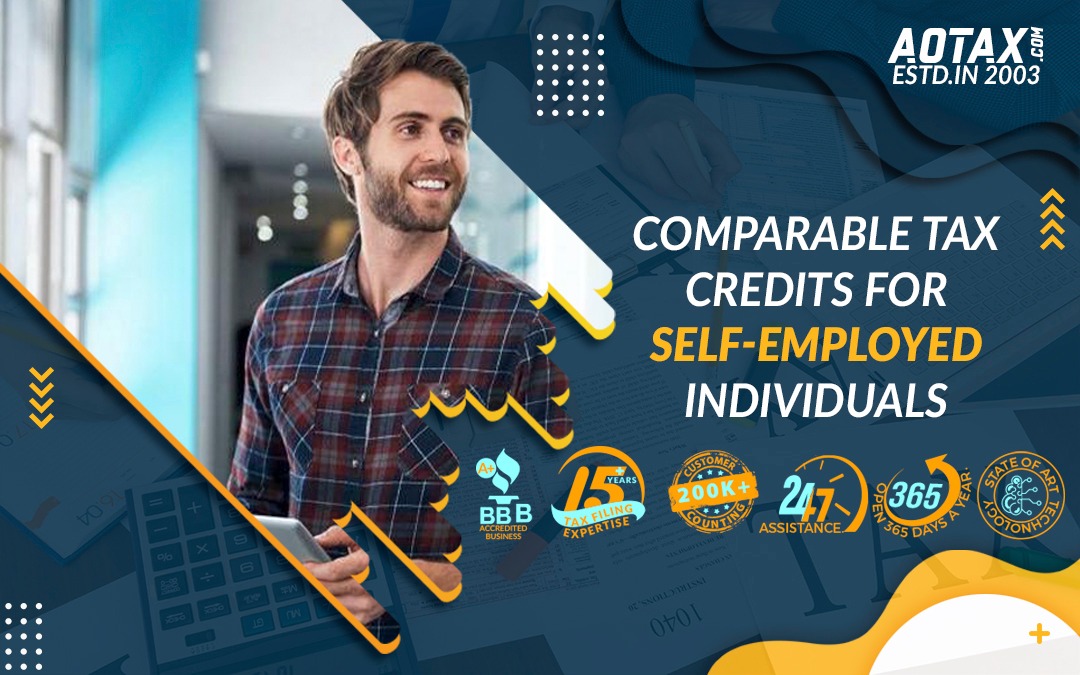
What are the tax relief initiatives taken by the IRS for self-employed taxpayers during COVID-19?
What are the tax relief initiatives taken by the IRS
for self-employed taxpayers during COVID-19?
The US Government has recently made changes into the tax filing timelines as an effort to provide some relief to the taxpayers who are already suffering due to the outbreak of pandemic COVID-19. These changes were jointly announced by the US treasury and the IRS and are applicable for individual taxpayers, businesses and even self-employed taxpayers.
The US Government has extended the income tax filing deadline to 15th July 2020. The IRS would be processing the refund process for all the taxpayers within the normal time frame which is around 21 days for those filing the tax returns by electronic medium or by direct deposit.
Tax-filing extensions for self-employed taxpayers

Tax-filing extensions for self-employed taxpayers
The tax filing timeline has been extended for 90 days without the payment of any penalty and this change is also applicable on the estimated tax payment for the year 2020 which was also due on 15th April 2020.
For self-employed taxpayers, if there is a filing of the quarterly estimated tax then first-quarter filing must be due by 15th April 2020 previously. The timeline for the filing of the first quarter estimated tax has now been extended to 15th July 2020. However, for the other quarters, the filing dates remain unchanged such as the tax filing deadlines remain 15th June 2020, 15th September 2020 and 15th January 2021 for the second, third and fourth quarters.
The Families First Coronavirus Act
On 18th March 2020, the US President signed into law the Families First Coronavirus Act which is the initial coronavirus relief bill. This Act provides several benefits to self-employed taxpayers and small-business owners.
1.Comparable tax credits for self-employed individuals

a.If a self-employed individual is affected by the coronavirus, then by this Act he is eligible to claim a refundable credit against the bill of his federal income tax including the self-employment tax hit. In case the credit is more than the bill amount then the Government will issue a payment for the excess to the taxpayer.
b.This refundable credit will equal to the sum of 100% of the self-employed individual’s sick leave equivalent and 67% of the sick leave equivalent amount needed for taking care of a family member who is sick or for taking care of the individual’s child due to the closing of the child’s school or child care center.
c.The sick leave equivalent amount would equal to lesser among the below-mentioned
- average daily self-employment income of the individual or
- $511 each day for up to 10 days for self –care due to the COVID-19 or $200 each day up to 10 days for the care of a sick family member or child after the latter’s school has been closed due to COVID-19.
d.Moreover, self-employed individuals can claim a family-leave credit due to COVID-19 up to 50 days. The amount of this credit would be equal to the number of the qualified family day leaves multiplied with the lesser amongst $200 or the individual’s average daily self-employment income. The maximum total family-leave credit permissible is $10,000 which is equal to 50 days multiplied with $200 per day.
e.These credits which can be availed by the self-employed individuals are allowed only for the days during a particular period which is specified by the Treasury up to 31st December 2020. The beginning date is most likely to be within 15 days of the date this Act became a law i.e. 18th March 2020.
f.The self-employed individuals must maintain proper documentation needed to claim these credits.
2.Small Business Owners Tax Credits

- A small business owner is eligible to collect a tax credit which is equal to 100% of the qualified emergency sick-leave and family-leave payments made by him under the Families first coronavirus Act.
- This credit would only cover those leave payments which are made during the period specified by the Secretary of the Treasury up to 31st December 2020.
- This credit can also be increased for providing cover to a portion of the small business owner’s qualified health-plan expenses which can be allocated for emergency sick-leaves and family-leave wages.
- However, this credit would not be available for those employers who are already receiving the pre-existing credit for paid family leave and medical leave under IRS Code Section 45S.
Conclusion
Hence, with the outbreak of the COVID-19 the self-employed individuals and small business owners have also suffered from certain economic and financial disruptions. The attempt of the US Government to bring certain relief to these taxpayers by changing tax laws and by passing the Family First Coronavirus Act is sure to be successful.
References
https://blog.turbotax.intuit.com/self-employed/what-the-coronavirus-relief-means-for-self-employed-taxpayers-46585/

Recent Comments